 Topic close-up #14
Topic close-up #14
Symposium: I06—Energy Conversion Based on N, P, and Other Nutrients 3
For more information on 245th ECS Meeting symposia, consult additional topic close-ups.
 Topic close-up #14
Topic close-up #14Symposium: I06—Energy Conversion Based on N, P, and Other Nutrients 3
For more information on 245th ECS Meeting symposia, consult additional topic close-ups.
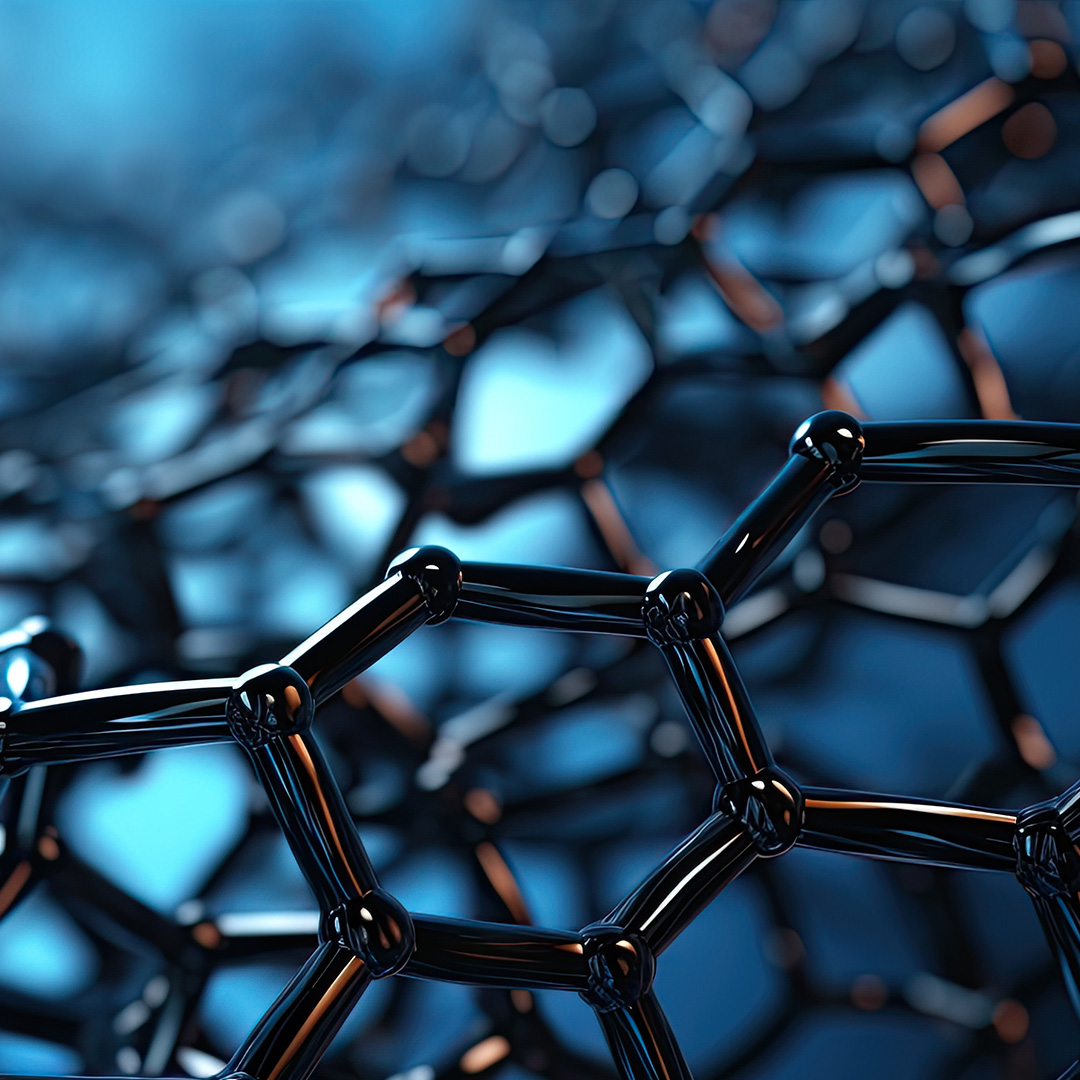 Topic Close-up #4
Topic Close-up #4Symposium: B01—Carbon Nanostructures for Energy Conversion and Storage
For more information on 245th ECS Meeting symposia, consult additional topic close-ups.
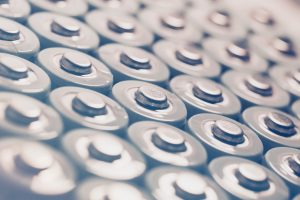 Topic Close-up #1
Topic Close-up #1Symposium A04—Battery Student Slam 7
Submit today! (more…)
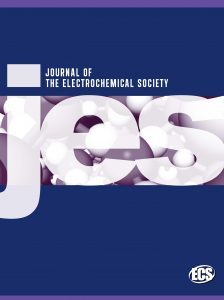 Deadline: September 13, 2019
Deadline: September 13, 2019ECS is seeking to fill the position of technical editor in fuel cells, electrolyzers, and energy conversion for the Journal of The Electrochemical Society (JES).
Nominees for this position must possess and maintain scientific knowledge of the scope of the fuel cells, electrolyzers, and energy conversion topical interest area, which covers theoretical and experimental aspects of all types of fuel cells, electrolyzers, photovoltaics, and photoelectrochemistry. Specific topics as relates to energy conversion include design, modeling, testing, and evaluation; novel electrode structures and their characterization, including electrocatalytic materials and electrocatalysis; engineering aspects of fuel, electrochemical fuel synthesis, water, and thermal management. Materials at high temperatures are included.
The technical editor will be appointed for a minimum initial two-year term, renewable for additional terms, up to a maximum of 12 years total service in this role.
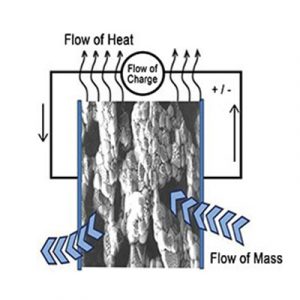 Submission Deadline: October 23, 2019
Submission Deadline: October 23, 2019
Submit your manuscripts to the Journal of The Electrochemical Society Focus Issue on Heterogeneous Functional Materials for Energy Conversion and Storage.
This special issue focuses on Heterogeneous Functional Materials (HeteroFoaMs), which are pervasive in electrochemical devices. These devices consist of multiple materials combined at multiple scales (from atomic to macro) that actively interact during their functional history in a manner that controls their collective performance as a system at the global level. The principal motivation for this special issue will be to provide a forum to discuss the science that controls emergent properties in heterogeneous functional materials as a foundation for design of functional material devices with performance not bounded by constituent properties.
 The Journal of The Electrochemical Society (JES) Focus Issue on Oxygen Reduction and Evolution Reactions for High Temperature Energy Conversion and Storage is now complete, with 16 open access papers published in the ECS Digital Library.
The Journal of The Electrochemical Society (JES) Focus Issue on Oxygen Reduction and Evolution Reactions for High Temperature Energy Conversion and Storage is now complete, with 16 open access papers published in the ECS Digital Library.
“In this new and exciting era of distributed electricity generation, the modularity (sub-kW to 100 kW systems) with minimal efficiency loss at small scales makes solid oxide fuel cells (SOFCs) an exciting energy conversion technology,” the authors say in the focus issue’s preface. “This focus issue presents some of the latest research in understanding fundamental mechanisms of ORR and OER, and highlights new materials and concepts to achieve both greater performance and long-term durability.”
Read the full JES Focus Issue on Oxygen Reduction and Evolution Reactions for High Temperature Energy Conversion and Storage.
ECS would like to thank JES technical editor Tom Fuller and this focus issue’s guest editors Sean Bishop, Ainara Aguadero, and Xingbo Liu.
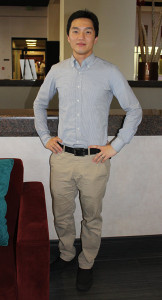
Jaeho Lee, head of the Nano Thermal Energy Research Group.
Every year, around 60 percent of the energy produced in the United States is wasted. With a heavy reliance on traditional combustion cycles and the burning of fossil fuels, an astronomical amount of potentially usable energy dissipates into the environment as waste. However, there may be a way to harvest that waste energy without drastically changing the energy infrastructure.
Jaeho Lee, assistant professor at the University of California, Irvine and ECS member, recently presented a paper at the 228th ECS Meeting on the thermal transport in nanostructures targeting the applications of thermoelectric energy conversion. This innovative technology has the potential to be applied to the current energy infrastructure in an effort to harvest a percentage of the wasted energy.
“Thermoelectrics could allow us to harvest waste heat in any form,” says Lee. “We could talk about large-scale waste heat from factory combustion cycles, but it could also be as small as something we generate from our bodies.”
Thermal energies exist everywhere. By harvesting waste energy, researchers are taking a complementary step toward a more sustainable energy infrastructure.
“Globally, we’re consuming a lot of energy,” says Lee. “The world population is continuously increasing. Not only that, our energy consumption rate is increasing.”
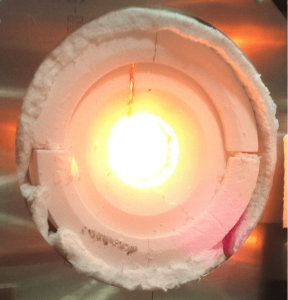
By concentrating sunlight into reactors, H2O and CO2 can be split to form liquid fuels.
Image: The Conversation/David Hahn
The sun produces an astronomical amount of energy each day, but scientists and engineers are still trying to better understand how to convert that energy into an efficient, usable form. Recently, work in photovoltaics deals with utilizing different materials, new arrangements of cell components, and interdisciplinary work to improve efficiently levels. However, a new and exciting area of photovoltaics is now rising in the ranks: turning sunlight into liquid fuels.
With this new development on the rise, the possibility of one day filling our cars with solar-generated fuel is on the horizon.
Researchers are giving more attention to the production of solar fuels because energy conversion and storage and simultaneously covered under one technique. It will give solar energy a wider scope due to more utilization opportunities, whereas conventional photovoltaic energy is only being used for one-third of the day when sunlight is at its peak.
Currently, the greatest roadblock lies in commercialization of the man-made solar fuels due to the substantial amount of energy it takes to break down stable CO2 and H2O molecules.
However, researchers are also exploring aspects of artificial photosynthesis through electrochemistry to help produce efficient, affordable man-made solar fuels.
Further material from the ECS Digital Library:
Read more about processes and current projects on The Conversation.
PS: Watch Ralph Brodd, a pillar of electrochemical science and technology with over 40 years in the electrochemical energy conversion business, talk about the future of the energy infrastructure and how it has transformed over the years.
What better day than Earth Day to highlight the work of ECS member Luke Haverhals, an assistant professor at Bradley University working in novel types of energy storage and conversion through the utilization of renewable, sustainable substrates such as hemp, wood, and silk.
Haverhals is a former student of current ECS 3rd Vice-President Johna Leddy. Since departing from Leddy and the University of Iowa, Haverhals has worked in an area focused on wielding natural fibers using ionic liquids (i.e. enhanced energy conversion devices).
Ionic liquids have been gaining much notoriety lately, with potential game changing electrolytes for energy conversion devices ranging from batteries to fuel cells.
Make sure to join Haverhals and other scientists pioneering world-changing research by joining ECS today and attending our upcoming scientific meeting!
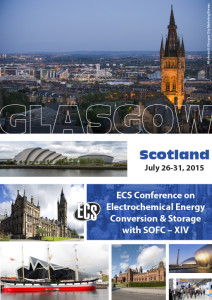 The ECS Conference on Electrochemical Energy Conversion & Storage with SOFC-XIV convening in Glasgow, Scotland at the Scottish Exhibition and Conference Centre from July 26-31, 2015 is the first of a series of planned biennial conferences in Europe by ECS on electrochemical energy conversion/storage materials, concepts, and systems.
The ECS Conference on Electrochemical Energy Conversion & Storage with SOFC-XIV convening in Glasgow, Scotland at the Scottish Exhibition and Conference Centre from July 26-31, 2015 is the first of a series of planned biennial conferences in Europe by ECS on electrochemical energy conversion/storage materials, concepts, and systems.
We are creating a forum where scientists and engineers can come together and discuss fundamental advances and engineering innovations.
Abstracts are due February 20, 2015
Find out more about submitting your abstract today!
The lead organizers of this conference are among the top researchers in their respective fields. We wanted to take a moment to introduce them to you: